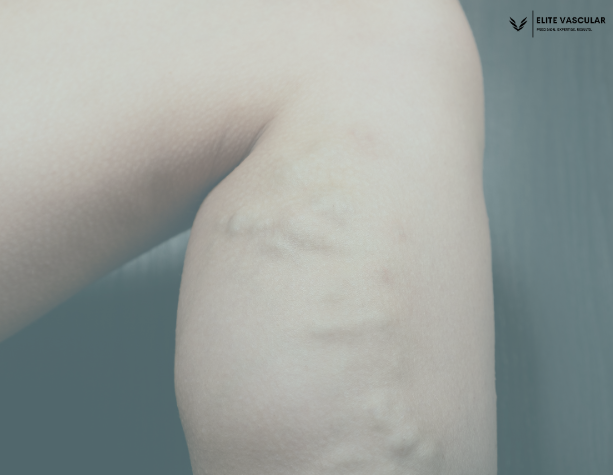- admin
- 0 Comments
Introduction
Postoperative swelling in individuals after varicose vein surgery is a prevalent problem. Varicose veins spread and chord-flagged veins that often appear in the lower loops and can cause discomfort and aesthetic problems. Although surgery is a successful treatment for varicose veins, it is common for patients to have edema as a constant side effect after operation. Getting information about built-in factors contributing to inflammation, implementing effective strategies to its management, and knowing when to take medical intervention, are the necessary components of a successful route towards recovery. This article explores many reasons that varicose vein surgery cause edema after and provide insight in ways to reduce pain and convenient the treatment process.
Understanding Swelling After Varicose Vein Surgery
After varicose vein surgery, it is common to feel some inflammation in the treated area. This inflammation is caused by the body’s general treatment process, which sends additional fluids and white blood cells at the surgical site for repairing and reconstruction of damaged tissues. Although some inflammation is likely, for severe or consecutive inflammation further reviews may be needed by your healthcare doctor.
How Long Does Swelling Last?
The duration of postoperative selling after varicose vein surgery can vary in different individuals. Usually, the inflammation reaches its highest point during the first week after surgery and then gradually decreases in the later weeks. After one month, most edema should decrease, and you should see considerably improvement in the format of a treated area.
Common Causes of Swelling after Varicose Vein Surgery
After the vein surgery party, some guests can stop for longer than their welcome due to swelling. That’s why they stayed for longer than expected on your leg-sofa.
Effects of Surgery on the Circulatory System
Understand your circulation system as a crowded traffic condition, and understand surgery as the construction work that leads to the turning. The postoperative edema can arise after varicose vein surgery when the body re-configures its circulation and adapts to fit changes.
Inflammation and Healing Processes
After surgery your body passes through inflammation and treatment processes, just as if a home is being renewed. This can lead to inflammation while your body is repairing and reconstructing an area where troubles caused varicose veins.
Tips for Managing Swelling
Elevate Your Legs
Lifting your legs above your heart level can help reduce edema by helping to improve blood circulation and remove additional fluids. Be sure to lift your legs for at least 15-20 minutes several times a day, especially after sitting or standing for a long time.
Wear Compression Stockings
Compression stockings lightly force the affected area, prevent the accumulation of excessive fluid and facilitate prompt recovery. After surgery, your healthcare professional may advise you to wear compression stockings for the specified period to increase the healthcare process.
Drink More Water (Stay Hydrated)
Sufficient amount of water intake is necessary to maintain optimal fluid balance in the body. By maintaining proper hydration, you can increase your body’s ability to efficiently discharge additional fluid, which will reduce inflammation and the treatment process will be easier.
Avoid Sitting or Standing (Prolonged)
Sitting or standing for a long time can impede blood flow, as a result of which may increase inflammation and pain. Try to change and change your body’s condition regularly to avoid accumulation of fluids in the treated area.
Follow Your Surgeon’s Post-Operative Instructions
Your surgeon will provide you with detailed post-operative instructions to suit your specific requirement. It is important to carefully follow these recommendations to guarantee seamless recovery and reduce issues related to edema.
When to Seek Medical Attention
Although it is common to experience mild to medium inflammation after varicose vein surgery, specific symptoms can indicate a more severe condition that requires medical intervention. If you are experiencing abnormal amount of inflammation, acute discomfort, redness, heat or fever in the treated place, contact your healthcare professional immediately.
Inflammation after varicose vein surgery is a consecutive occurrence which can be controlled properly carefully and carefully. By following the recommendations given in this article and by consciousness to any worried signs, you can successfully cross your after-operation period and get the best possible results. It’s important to note that it is important to be patient for successful travel towards recovery and take care of yourself.
Following Up on Your Road to Recovery
After surgery successfully, what are the next steps? To ensure that your legs keep fine, here are some post-operative care guidelines:
Follow Your Doctor’s Orders: Follow the advice given by your doctor, as they have the most accurate knowledge and expertise. Make sure you pay full attention to all the necessary functions, such as taking prescribed medications, changing dressings and attending follow-up appointments. Don’t ignore any important thing of these.
Watch Out for Infections: Be alert to secretions of any signs of infection, such as increased redness, inflammation, or surgical wound. If things look unusual or unusual, don’t hesitate to contact your doctor.
Ease Back into Activities: Although you may be excited to showcase your new implicit legs, it is advisable to take care while performing strenuous physical activity. It’s important to give your body enough time to fix before participating in the marathon. It’s important to remember that it’s important to be patient in the process of rehabilitation. Your legs will express gratitude towards you in the long term.
Conclusion
The postoperative swelling after varicose vein surgery is a transient but anticipated ingredient of the health benefit period. By following post-operative care instructions, using recommended measures to reduce inflammation, and being cautious to any indicator of difficulties, individuals can successfully surpass this stage of treatment with assurance. It’s important to remember that each person’s recovery can vary, so it’s important to have open communication with health care professionals and get help if there is any problem. Through patience and hardworking care, most patients can get favorable results and experience increased vascular well-being after varicose vein surgery.
